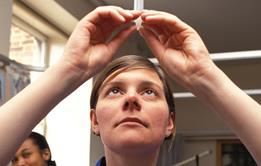From better workforce vetting to aggressive new approaches to tackling pressure sores, our supplement looks at the latest thinking on keeping the public safe

The risks and delays caused by an outdated clinical correspondence system can be tackled through technology − and a shift in attitudes, writes Daloni Carlisle. Plus Chris Rodwell explains why in the world of healthcare, faster can sometimes mean safer, too.
Pressure ulcers can be devastating for the patient but are finally being given a higher profile nationally, reports Jennifer Trueland, while Paul Trueman argues that the injury should be a major indicator of care quality. And in our case studies section, we look at two successful local campaigns to tackle this injury.
With the pressure on to meet minimum levels of staffing, how can managers guarantee that their many temporary workers are trained and safe, asks Daloni Carlisle. And Stephen Burke explains the benefits of common compliance and the Skills Passport. Pat McLaren looks at the experiences of a locum doctor who underwent compliance checks - and at the vetting procedure from a trust’s point of view.
Getting from “discussion” to “dialogue” is crucial if major change is to be achieved but the pressurised climate of the NHS makes this a challenge, writes Claire Read, while Alex Small expands on how to achieve transformational thinking.
Downloads
Topics
Patient Safety − an HSJ supplement

From better workforce vetting to new approaches to tackling pressure sores, the latest thinking on patient safety
 Currently
reading
Currently
reading
Patient Safety − an HSJ supplement
- 2
- 3
- 4
- 5
- 6
- 7








































No comments yet